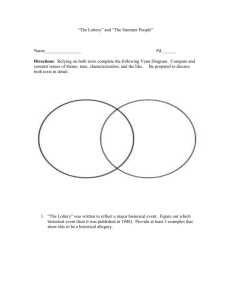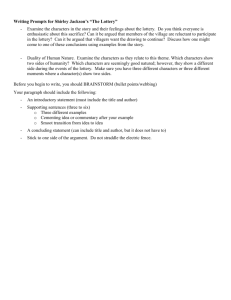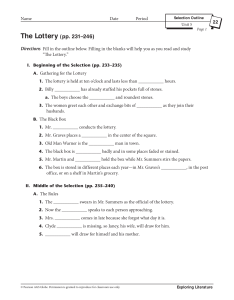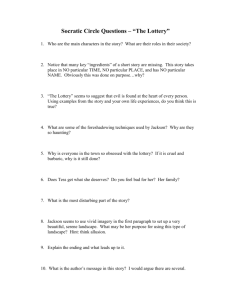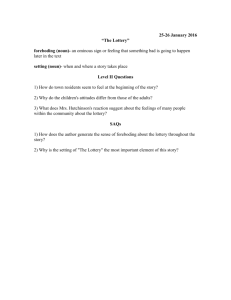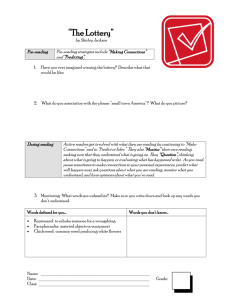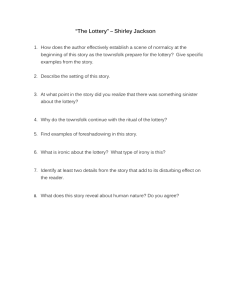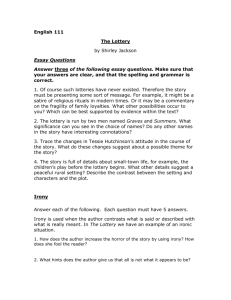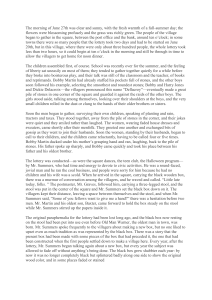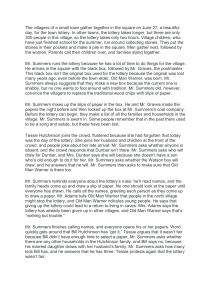The Lottery
advertisement
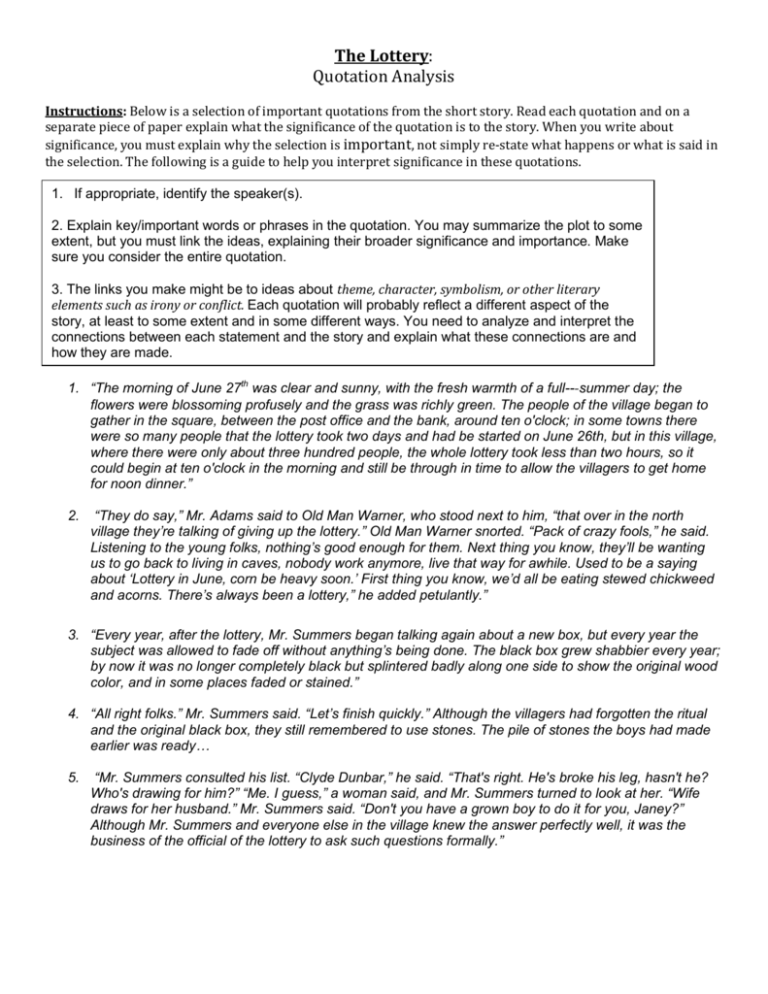
The Lottery: Quotation Analysis Instructions: Below is a selection of important quotations from the short story. Read each quotation and on a separate piece of paper explain what the significance of the quotation is to the story. When you write about significance, you must explain why the selection is important, not simply re-state what happens or what is said in the selection. The following is a guide to help you interpret significance in these quotations. 1. If appropriate, identify the speaker(s). 2. Explain key/important words or phrases in the quotation. You may summarize the plot to some extent, but you must link the ideas, explaining their broader significance and importance. Make sure you consider the entire quotation. 3. The links you make might be to ideas about theme, character, symbolism, or other literary elements such as irony or conflict. Each quotation will probably reflect a different aspect of the story, at least to some extent and in some different ways. You need to analyze and interpret the connections between each statement and the story and explain what these connections are and how they are made. 1. “The morning of June 27th was clear and sunny, with the fresh warmth of a full--‐summer day; the flowers were blossoming profusely and the grass was richly green. The people of the village began to gather in the square, between the post office and the bank, around ten o'clock; in some towns there were so many people that the lottery took two days and had be started on June 26th, but in this village, where there were only about three hundred people, the whole lottery took less than two hours, so it could begin at ten o'clock in the morning and still be through in time to allow the villagers to get home for noon dinner.” 2. “They do say,” Mr. Adams said to Old Man Warner, who stood next to him, “that over in the north village they’re talking of giving up the lottery.” Old Man Warner snorted. “Pack of crazy fools,” he said. Listening to the young folks, nothing’s good enough for them. Next thing you know, they’ll be wanting us to go back to living in caves, nobody work anymore, live that way for awhile. Used to be a saying about ‘Lottery in June, corn be heavy soon.’ First thing you know, we’d all be eating stewed chickweed and acorns. There’s always been a lottery,” he added petulantly.” 3. “Every year, after the lottery, Mr. Summers began talking again about a new box, but every year the subject was allowed to fade off without anything’s being done. The black box grew shabbier every year; by now it was no longer completely black but splintered badly along one side to show the original wood color, and in some places faded or stained.” 4. “All right folks.” Mr. Summers said. “Let’s finish quickly.” Although the villagers had forgotten the ritual and the original black box, they still remembered to use stones. The pile of stones the boys had made earlier was ready… 5. “Mr. Summers consulted his list. “Clyde Dunbar,” he said. “That's right. He's broke his leg, hasn't he? Who's drawing for him?” “Me. I guess,” a woman said, and Mr. Summers turned to look at her. “Wife draws for her husband.” Mr. Summers said. “Don't you have a grown boy to do it for you, Janey?” Although Mr. Summers and everyone else in the village knew the answer perfectly well, it was the business of the official of the lottery to ask such questions formally.”
